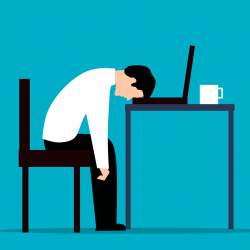To provide the best experiences, we use technologies like cookies to store and/or access device information. Consenting to these technologies will allow us to process data such as browsing behaviour or unique IDs on this site. Not consenting or withdrawing consent, may adversely affect certain features and functions.
The technical storage or access is strictly necessary for the legitimate purpose of enabling the use of a specific service explicitly requested by the subscriber or user, or for the sole purpose of carrying out the transmission of a communication over an electronic communications network.
The technical storage or access is necessary for the legitimate purpose of storing preferences that are not requested by the subscriber or user.
The technical storage or access that is used exclusively for statistical purposes.
The technical storage or access that is used exclusively for anonymous statistical purposes. Without a subpoena, voluntary compliance on the part of your Internet Service Provider, or additional records from a third party, information stored or retrieved for this purpose alone cannot usually be used to identify you.
The technical storage or access is required to create user profiles to send advertising, or to track the user on a website or across several websites for similar marketing purposes.
 As the new Covid-19 variant, omicron, threatens to spread across the globe, research from Infogrid, claims that people who have not had their Covid-19 vaccination have become a major barrier to employees wanting to return to the physical office. Over half (57 percent) of UK employees who attend or expect to return to the physical workplace said they are worried about encountering people at work who are not vaccinated. (more…)
As the new Covid-19 variant, omicron, threatens to spread across the globe, research from Infogrid, claims that people who have not had their Covid-19 vaccination have become a major barrier to employees wanting to return to the physical office. Over half (57 percent) of UK employees who attend or expect to return to the physical workplace said they are worried about encountering people at work who are not vaccinated. (more…)








 One leadership characteristic that I believe should be prioritised above all others is compassion because every day I see that the world could benefit from kinder leaders. All other leadership qualities are interconnected with compassion. If we are to feel and demonstrate compassion, it is imperative to have a deeper understanding of connectivity with others and how to develop as a compassionate leader.
One leadership characteristic that I believe should be prioritised above all others is compassion because every day I see that the world could benefit from kinder leaders. All other leadership qualities are interconnected with compassion. If we are to feel and demonstrate compassion, it is imperative to have a deeper understanding of connectivity with others and how to develop as a compassionate leader. 
 A series of reports published by the International Longevity Centre UK (ILC) highlights the economic opportunities of longer lives across Europe. According to
A series of reports published by the International Longevity Centre UK (ILC) highlights the economic opportunities of longer lives across Europe. According to 
 Whilst driving through Zürich in a hailstorm I passed a Mercedes with a plastic bin liner taped over a missing window. Two thoughts struck me. First: this must be the result of the owner locking himself out of the car, as car crime is a fictional event in Switzerland (bike theft is preferred). The second was how utterly pointless this flapping piece of plastic served as an attempt to seal the broken window.
Whilst driving through Zürich in a hailstorm I passed a Mercedes with a plastic bin liner taped over a missing window. Two thoughts struck me. First: this must be the result of the owner locking himself out of the car, as car crime is a fictional event in Switzerland (bike theft is preferred). The second was how utterly pointless this flapping piece of plastic served as an attempt to seal the broken window. 
 There is a classic saying which has shaped our job choices for years: “Do what you love, the money will follow.” New research suggests this may be true, although not in the way it was originally conceived. The typical logic train has suggested job interest shapes satisfaction and, in turn, satisfaction may drive better performance. However, new
There is a classic saying which has shaped our job choices for years: “Do what you love, the money will follow.” New research suggests this may be true, although not in the way it was originally conceived. The typical logic train has suggested job interest shapes satisfaction and, in turn, satisfaction may drive better performance. However, new 
 New research commissioned by
New research commissioned by 
 Architects and designers have always a had a thing for door handles. It’s the kind of detail they like and one of the most genuinely tactile features of a building. Architects from Frank Gehry to Zaha Hadid have worked on the designs of door handles for manufacturers.
Architects and designers have always a had a thing for door handles. It’s the kind of detail they like and one of the most genuinely tactile features of a building. Architects from Frank Gehry to Zaha Hadid have worked on the designs of door handles for manufacturers. 
 A survey of hybrid-office and home-based UK workers gives insight for employers into some of today’s biggest needs for office workers to carry out their roles. 73 percent of UK workers believe that the provision of ergonomic work conditions, as well as support for their health, will play a bigger role when choosing a company to work for.
A survey of hybrid-office and home-based UK workers gives insight for employers into some of today’s biggest needs for office workers to carry out their roles. 73 percent of UK workers believe that the provision of ergonomic work conditions, as well as support for their health, will play a bigger role when choosing a company to work for. 
 British workers took the seventh lowest number of sick days in Europe last year, according to new
British workers took the seventh lowest number of sick days in Europe last year, according to new 
 Programmes aimed at supporting employees’ health and wellbeing can also benefit their social relationships and reduce bullying, according to a new study by researchers from the
Programmes aimed at supporting employees’ health and wellbeing can also benefit their social relationships and reduce bullying, according to a new study by researchers from the 
 More than half of young professionals (those aged 16-34), feel burnt out right now, according to new research exploring experiences of burnout pre and post pandemic from people analytics company,
More than half of young professionals (those aged 16-34), feel burnt out right now, according to new research exploring experiences of burnout pre and post pandemic from people analytics company, 








December 3, 2021
Menopause may amount to a disability under law in some cases
by Kathryn Clapp • Comment, Flexible working, Wellbeing